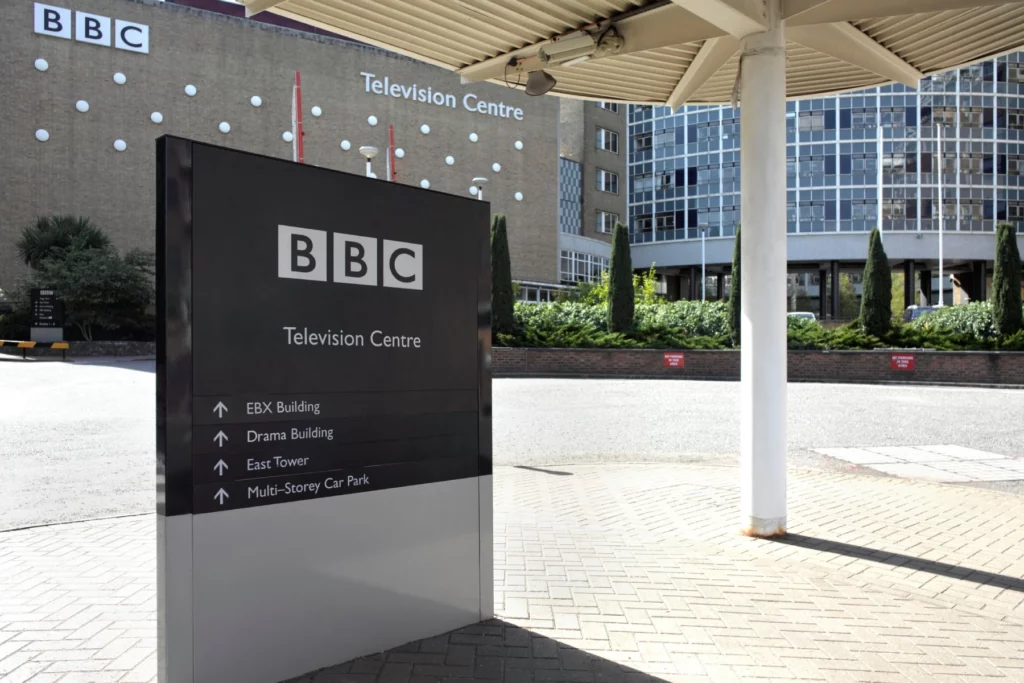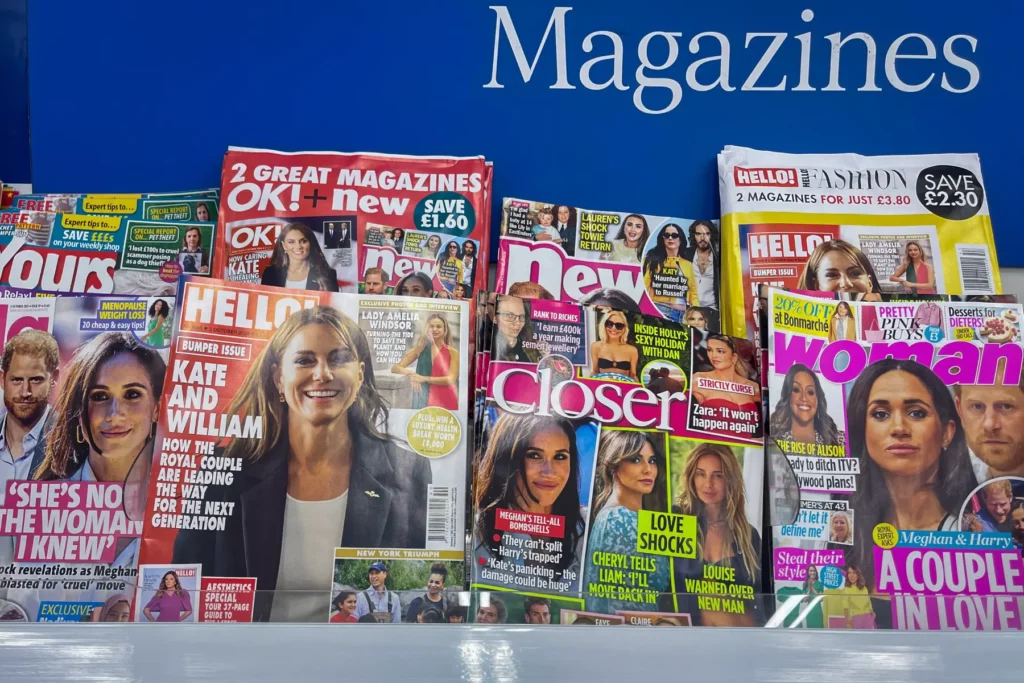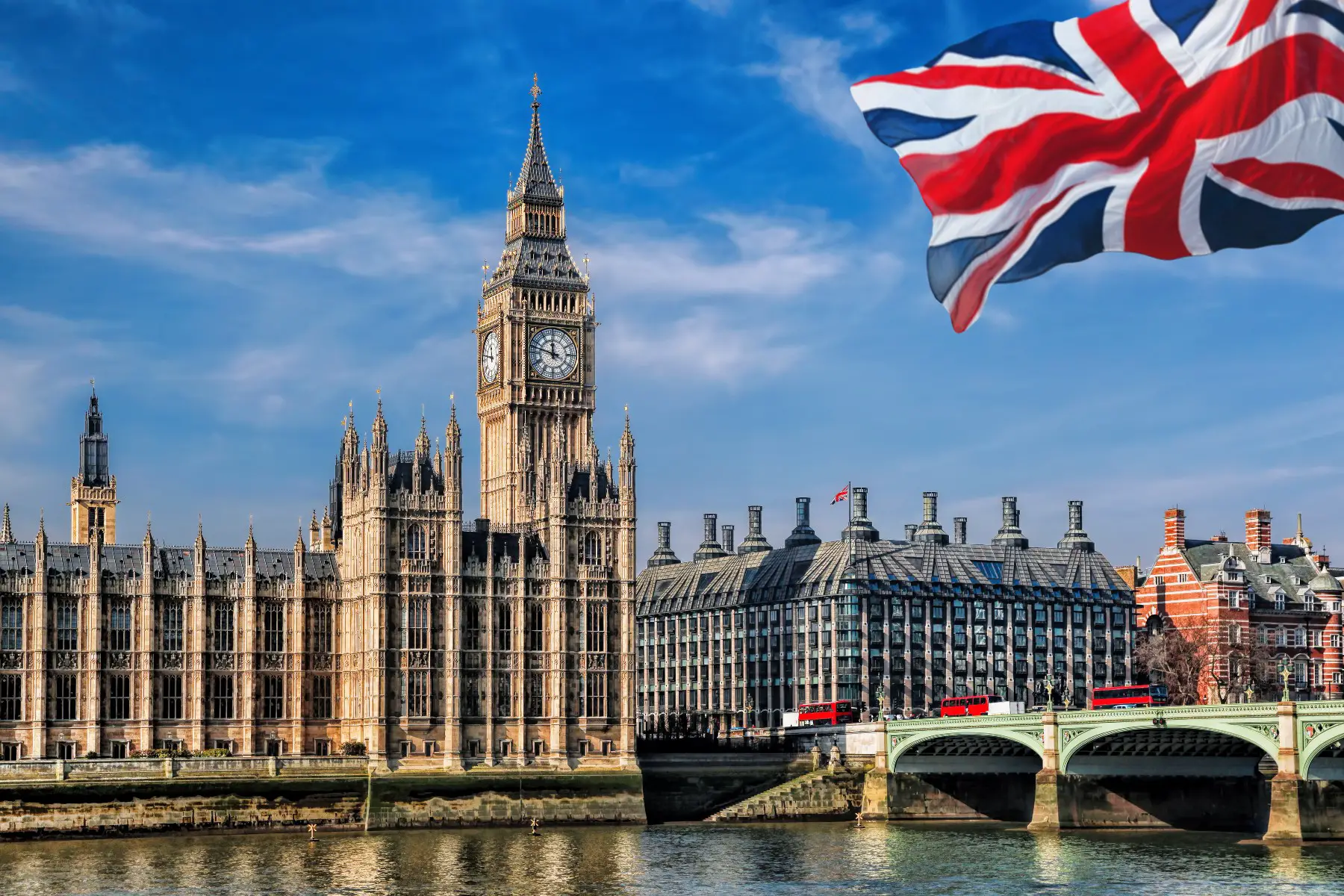Brits are hungry for news and are very well served by a diverse range of newspapers, broadcasters, and their associated news websites. Indeed, it is fair to say that the UK’s media market covers all the angles. However, to help you identify the sources you can trust as well as those you should steer clear of, this article includes the following information:
Ground News
Get every side of the story with Ground News, the biggest source for breaking news around the world. This news aggregator lets you compare reporting on the same stories. Use data-driven media bias ratings to uncover political leanings and get the full picture. Stay informed on stories that matter with Ground News.
The UK media landscape
Funded by an annual license fee paid by television viewers, the BBC (British Broadcasting Corporation) is the most popular news organization in the UK.
Indeed, it is the largest broadcast news operation in the world, with more than 2,000 journalists and 48 newsgathering bureaus, 41 of which are overseas.

In 2023, the media industry’s house magazine Press Gazette reported that the BBC reached 73% of UK residents over 16 with its output via TV, radio, and online. In addition to its national and international coverage, the BBC has an extensive network of local and regional TV and radio news programs.
Although the UK government sets the license fee and appoints a chairman for the BBC, it does not control its output. On the contrary, the corporation is governed by a Royal Charter which insists it is independent of government interference and free from political bias. Therefore, it is fair to say that there is no state-run, or state-censored news in the UK.
The 2023 Reuters Institute Digital News Report confirms that the BBC is the most popular source of news among both Conservative and Labour voters in the country.
However, while the BBC dominates the UK media market, it has plenty of rivals, including ITV (Independent Television) which reached 42% of UK residents in 2023, and Facebook and Instagram owner Meta, which reached 37%, according to Press Gazette.
Press Gazette also highlights the growing power of social media news sources, particularly among the younger generation. TikTok, for instance, is the fastest-growing source of news among teenagers who are more likely to be interested in news about trends and celebrities.
Political viewpoints
There are 12 national newspapers in the UK, and while printed versions are suffering a continued long decline in circulation, the well-established titles continue to be popular online. All of them are privately owned and have their own distinctive political outlook.

The majority of national newspapers, such as The Sun, Daily Mail, Times, Telegraph, and Daily Express, are widely accepted to support the Conservative Party. These are balanced by the Guardian, Daily Mirror, and Independent, which have a left-of-center agenda.
All newspapers are free to take their own stance and be highly critical of political parties and individual politicians. However, as a result of this well-established political bias in the press, most Brits have a cynical attitude towards it.
Distrust in the UK press
In March 2023, Press Gazette reported on a survey of 24 countries where only Egypt reported lower levels of trust in the press than the UK.
The survey, which was conducted by Kings College London, found that just 13% of Brits said they had a great deal or quite a lot of confidence in the press. This compares with:
- 18% in Australia
- 30% in France, the US, and Italy
- 36% in Germany
- 43% in Canada
- 68% in China
- 70% in Japan
Although this lack of confidence may be seen as a failure of regulation, there are organizations in place to maintain standards of accuracy and fairness in news reporting.
Media regulators
The Independent Press Standards Organisation (IPSO) is the independent regulator for the newspaper and magazine industry. Its role is to hold publications accountable for their actions, protect individual rights, uphold high standards of journalism, and help maintain freedom of expression for the press.
Meanwhile, the Office of Communications (Ofcom) is the UK government’s approved regulator to oversee content published by broadcasters.

Notably, while newspapers are allowed to be overtly biased in their opinions, news broadcasters can expect to be chastised by Ofcom if they are perceived to be unfair. They are free to criticize, but they should provide balanced coverage.
Press freedom in the UK
Freedom of the press is cherished in the UK where journalists are largely free to investigate wrongdoing, corruption, and inappropriate behavior in a wide range of public bodies such as the police, armed forces, local and national government, and political parties.
There are laws that grant journalists access to information. Despite this, the UK ranks only 26th in the 2023 World Press Freedom Index. It claims that investigative journalism in the UK is threatened by national security legislation that lacks protective measures for reporters.
The Index, which is compiled annually by Reporters Without Borders, evaluates the environment for journalism in 180 countries and territories. It ranks Norway first, Ireland second, and Denmark third. Other noteworthy rankings are:
- Germany (21st)
- France (24th)
- Australia (27th)
- The US (45th)
- India (161st)
- Russia (164th)
- China (179th)
North Korea, where press freedom is classed as non-existent, ranks at the bottom of the list.
Where to get the news in English in the UK
English-language newspapers
Reading newspapers was second nature to generations of Brits until very recently when online news sites and social media changed habits beyond recognition.

Sales continue to fall quarter by quarter as they have for the last decade. That said, traditional national newspapers have survived in print form and continue to exert considerable power and influence on politics and the national mood.
Below is a list of the biggest sellers, as of October 2023, ranked by circulation:
- Metro (free) – daily circulation 953,064 (free on public transport, politically independent, tabloid)
- Daily Mail – daily circulation 722,650 (paid for, politically right-wing, tabloid)
- Mail on Sunday – Sunday circulation 620,622 (paid for, politically right-wing, tabloid)
- Evening Standard (free) – daily circulation 293,663 (free and available in the London area, largely right-wing, tabloid)
- Daily Mirror – daily circulation 248,035 (paid for, politically left-wing, tabloid)
- Sunday Mirror – Sunday circulation 186,453 (paid for, politically left-wing, tabloid)
- Daily Express – daily circulation 156,388 (paid for, politically right-wing, tabloid)
- Daily Star – daily circulation 139,822 (paid for, politically neutral, tabloid)
Notably, some of the UK’s biggest-selling newspapers do not publish their circulation figures. For example, The Sun, which is a paid-for tabloid paper owned by right-wing media tycoon Rupert Murdoch, is estimated to have the biggest daily sale.
Other big hitters include:
- The Times – paid for, politically right-wing, broadsheet
- The Telegraph – paid for, politically right-wing, broadsheet
- The Guardian – paid for, politically left-wing, broadsheet
English-language news TV stations
The BBC doesn’t have it all its own way when it comes to televised news. ITV has offered a national and regional alternative since the 1960s and continues to broadcast daily bulletins that mirror the BBC’s considerable output. Moreover, Channels Four and Five have regular bulletins that are considered to be well-resourced and respected.
In recent years, a number of alternative news organizations have established 24-hour rolling news stations that are freely available to UK television viewers. These include:
- Sky News – politically independent and well-regarded
- GB News – established to present a distinctly right-wing bias to national and world coverage
By going online, you will be able to access news content from your own country and from established international networks such as Fox, CNN, Euronews, France24, Al Jazeera, and CBS.
English-language news websites and social media
According to Press Gazette, the most popular news websites in the world, as of October 2023, were dominated by English-speaking output. The list was topped by the BBC with 1.2 billion visits during that month for its bbc.co.uk and bbc.com platforms.

Other high-ranking platforms include:
- cnn.com – world news with a live TV link
- msn.com – national and world news, links to multiple sources
- nytimes.com – breaking news, strong American perspective on world events
- dailymail.com – mix of gossip, scandal, entertainment, and breaking UK/world news
- news.google.com – local and national breaking news from various sources
- theguardian.com – comprehensive mix of news and features from the UK and the world
Newspapers and magazines in the UK
Enter any newsagent and you will find a bewildering array of publications, including local and regional newspapers and magazines, covering a wide range of specialist interests and hobbies.
Despite this, the international media analyst Media Landscapes confirms the terminal decline of the UK’s print industry. Indeed, regional and local daily and weekly newspapers, which were once staples in almost every household, have suffered declines in circulation even more dramatically than national titles.
Many have either merged or gone online only and the survivors have had to cut staff, leading to a decline in their quality.
Regional or local newspapers
That said, surviving regional newspapers provide a valuable source of information about local politics and events as well as a useful guide to sporting and cultural activities.
Some also remain large enough to break important national stories and shape opinion, even though their circulations are perhaps only a tenth of what they were a decade ago.
According to Statista, the biggest and most influential regional newspapers in the UK are:
- Aberdeen Press and Journal
- The Courier, Dundee
- Manchester Evening News
- Liverpool Echo
- Eastern Daily Press (Norwich)
- Express and Star (West Midlands)
- Yorkshire Post
- Shropshire Star
The online resource for UK journalists, HoldtheFrontPage, has useful lists of every daily and weekly regional newspaper still in print. It lists hundreds of titles in alphabetical order so you can see if there is one available where you live.
Weekly or periodical newspapers or magazines
If you prefer to take a more considered view of events, there are plenty of news and current affairs periodicals on newsagent shelves.
Magazine.co.uk lists the available titles which include established publications such as The Week, New Statesman, The Spectator, Money Week, The Oldie, First News (aimed at children), and the satirical and irreverent Private Eye.

Specialist newspapers
Magazine.co.uk also guides you through a seemingly inexhaustible list of specialist publications. There are titles covering all manner of hobbies as well as:
- Sports: such as Golf Monthly, The Cricketer, Outdoor Swimmer, and Autosport
- Fashion and beauty: such as Women’s Health, Vogue, Tatler, and Grazia
- Motoring: such as Auto Express, Autocar, Top Gear, and Practical Classics
- Entertainment: such as My Weekly, Empire, Radio Times, Puzzler, and HiFi Choice
- Lifestyle: such as Readers’ Digest, Saga, Hello, OK, Good Housekeeping, and Slimming World
- Homes and gardens: such as Ideal Home, Country Living, Country Life, and Grand Designs
- Food and drink: such as BBC Good Food, Whisky, Vegan Food and Living, and Decanter
- Science and nature: such as New Scientist, The Great Outdoors, BBC Wildlife, and National Geographic
- Computers and technology: such as Play, Retro Gamer, Wired, and Digital Photographer
- Arts and culture: such as History, Artists and Illustrators, History of War, and The Artist
- Business and finance: such as Prospect, Fortune, MoneyWeek, and The Planner
In other words, if you have an interest, you should be able to find a weekly, monthly, or periodical publication dedicated to it.
Radio news channels in the UK
As with televised news, the BBC does not have a monopoly on radio news coverage, particularly when it comes to national and international coverage.
Rivals to the BBC’s World Service, Radio 4 and Radio 5 Live include News Radio UK, Sky News Radio, Times Radio, GB News Radio, and LBC. There is also a dedicated sports news channel, talkSPORT. You can find all these stations on the DAB network.
There is a multitude of local BBC stations across the UK that offer detailed local news updates and local perspectives on national and world events. You can find a list of them on the BBC website.
Many of the independent local radio stations also broadcast short hourly news bulletins that focus on local news and events.
Specialist news programs
The BBC’s Question Time is a weekly panel program where members of the audience are invited to ask searching questions to a panel of politicians, experts, and activists about issues in the news.

The show tours the country and the make-up of the panel changes each time. It is an example of the different ways in which the UK’s news broadcasters examine events and present different perspectives related to the news.
A number of news magazine programs have a reputation for exposing scandals and injustices in the UK and around the world. Broadcast weekly, in seasons, or periodically, these specialist presentations often include in-depth research rather than a quick appraisal.
Noteworthy examples include:
- World in Action (ITV)
- Panorama (BBC)
- Dispatches (Channel 4)
- Tonight (ITV)
- Unreported World (Channel 4)
- On Assignment (ITV)
News websites in the UK
The decline in the circulation of the once mighty print newspapers has naturally coincided with an explosion in the number of news websites.
According to Statista, television was the most used platform for news consumption in the UK in August 2023. However, this would soon be overtaken by the internet.
Indeed, a survey reveals that 80% of people aged 18 to 24 use the internet as their primary source of news, and 70% of all UK residents regularly read or download news content online.
According to Press Gazette, the most popular sites are linked to traditional news providers such as the BBC, ITV, Daily Mail, The Guardian, The Independent, and Sky News.
Their domination is challenged by sites such as:
- HuffPost UK
- Google News
- Reuters
- Yahoo! News
Social media news sources in the UK
Ofcom has highlighted the growing influence of social media in shaping the UK’s access to news. The regulatory body’s News Consumption in the UK: 2023 report reveals that the nation’s older teens and young adults are much more likely to consume news online, usually via social media on their smartphones.

Under 25s are turning to the likes of Instagram, Facebook, Twitter (or X), and TikTok. Indeed. the BBC is the only traditional media source to feature in their top five.
Lighter news topics are of particular appeal across social media sites TikTok, Instagram, Facebook, and Snapchat. News topics of most interest to younger teens generally include:
- Sports or sports personalities (23%)
- Music news or singers (15%)
- Celebrities or famous people (11%)
- Serious things going on in the UK (8%)
- News about animals and the environment (9%)
Social media and internet content in the UK is not censored, but legislation was introduced as recently as 2021 to require platforms to remove illegal content involving child sexual abuse, hate speech, terrorism, revenge porn, and posts promoting self-harm and suicide.
Ofcom is worried about the spread of fake news via social media and has repeatedly warned that users are unable to spot it. In evidence to a UK Parliamentary Inquiry, the watchdog said that social media was responsible for spreading waves of misleading, incorrect, and harmful information about the COVID-19 pandemic.
How to spot fake news
Dr William Van Gordon, Associate Professor in Contemplative Psychology at the University of Derby, says that the key to stopping fake news is learning how to spot it.
Here are some top tips from the experts:
- Always consider whether the information has a named, reliable source
- Develop a critical mindset when reading news stories
- Think about what might be missing from the story; fake news often leaves information out of the story
- Double-check whether quotes attributed to a particular person or group have been represented accurately
- Look for fake images; if it is a fake news story, it may include a fake image or images that might not be relevant to the story. If you believe it is fake, check the image on Google Reverse.
There are also some resources out there specifically designed to help you assess news articles and sources for accuracy, bias, and reliability. Some of the services operating in the UK include:
Useful resources
- Press Gazette – the leading source of journalism industry news in the UK
- University of Derby Magazine – and article called How much is fake news influencing our lives?
- Ofcom – the Media Nations 2023 report showing the latest UK viewing and listening trends








